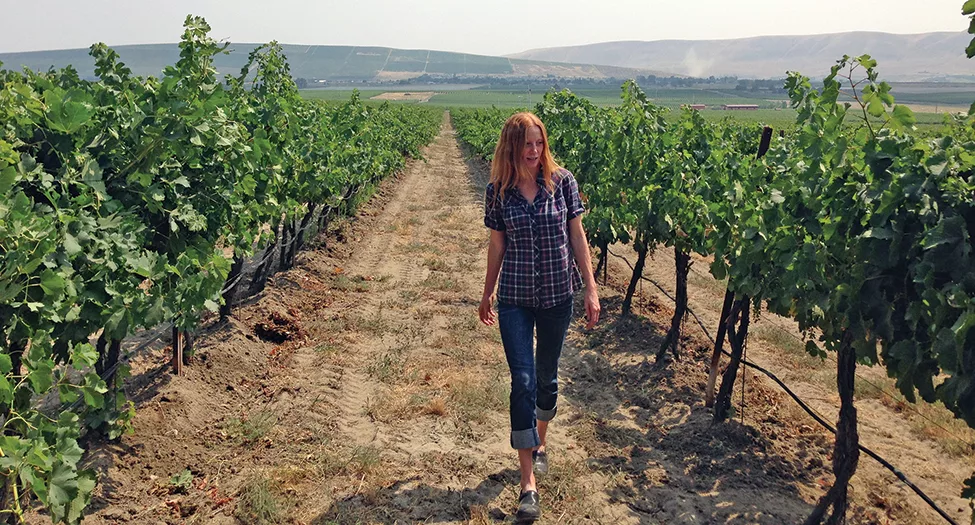
Home » Organic grapes: A natural tourist attraction
Organic grapes: A natural tourist attraction

June 12, 2019
The growing number of organic grape-growing regions in the
Northwest provide new opportunities for wine marketing around the popular
buzzword “terroir,” according to a new study by a Washington State University
Tri-Cities researcher.
Derived from the French word “terre,” meaning “land,” “terroir” is
used to denote the special characteristics of a place, said Byron Marlowe, WSU
Tri-Cities program coordinator and clinical assistant professor of hospitality
and wine and beverage business management.
Older wine growing regions in Europe have capitalized on marketing
terroir characteristics like climate, storytelling and the history of their
region.
For newer wine regions like Washington and Oregon, an opportunity
also exists in developing wine tourism by marketing terroir characteristics
such as natural vineyards, organic practices and the wineries that call them
home, according to a study Marlowe published in Beverages, an
international peer-reviewed journal on beverage research and development.
This kind of marketing may be currently underutilized in the
region, he said.
Marlowe said Washington wine country in the Tri-Cities, Prosser
and Walla Walla already highlight the sensory terroir experience stemming
from unique storytelling attributes of the region.
He said Badger Mountain Vineyard in the Tri-Cities and Hedges
Family Estate on Red Mountain both feature biodynamic farming practices, which
have attracted a new brand of wine tourists to the area. That market, he said,
only stands to grow as awareness of sustainable practices continues to spread
around the world.
Marlowe said terroir can drive consumers to wine regions for the
sense of place and environmental experience of wine, in addition to classic
wine country attributes.
In Oregon, more than 50 percent of grape growing operations are
certified organic, he said, which presents a unique wine cultural experience.
“There is a theme that is being set first among terroir factors in
Oregon, and that theme is sustainable agricultural practices,” he said. “It has
everything to do with how they treat the vines, the soil. These are vineyards
that aren’t manipulating or pressuring the growing process, and people are
responding to that by wanting to visit the sites of these vineyards and
wineries, and by wanting to observe the sensory experiences of more natural
vineyards.”
While it is harder to achieve a consistent flavor profile using
natural practices, Marlowe said the attention to the growing process is what
fascinates and excites tourists about the wine region and ultimately leads to
them buying the state’s wines. He said within the beauty of natural wine lie
flaws and inconsistent vintages, yet it is what is closest to the historical
practices of traditional winemaking and true to the terroir of a region.
“There is a real new movement toward natural wines,” Marlowe said.
“Organic vinicultural practices seek to preserve and protect the natural
environment, as well as maintain the naturalistic qualities of the wine
produced from the region. Both Oregon and Washington could capitalize on these
characteristics in how they market their wine regions, which gives them a
unique attraction point that stands to grow their wine economy.”
Agriculture + Viticulture
KEYWORDS focus agriculture viticulture 2019





